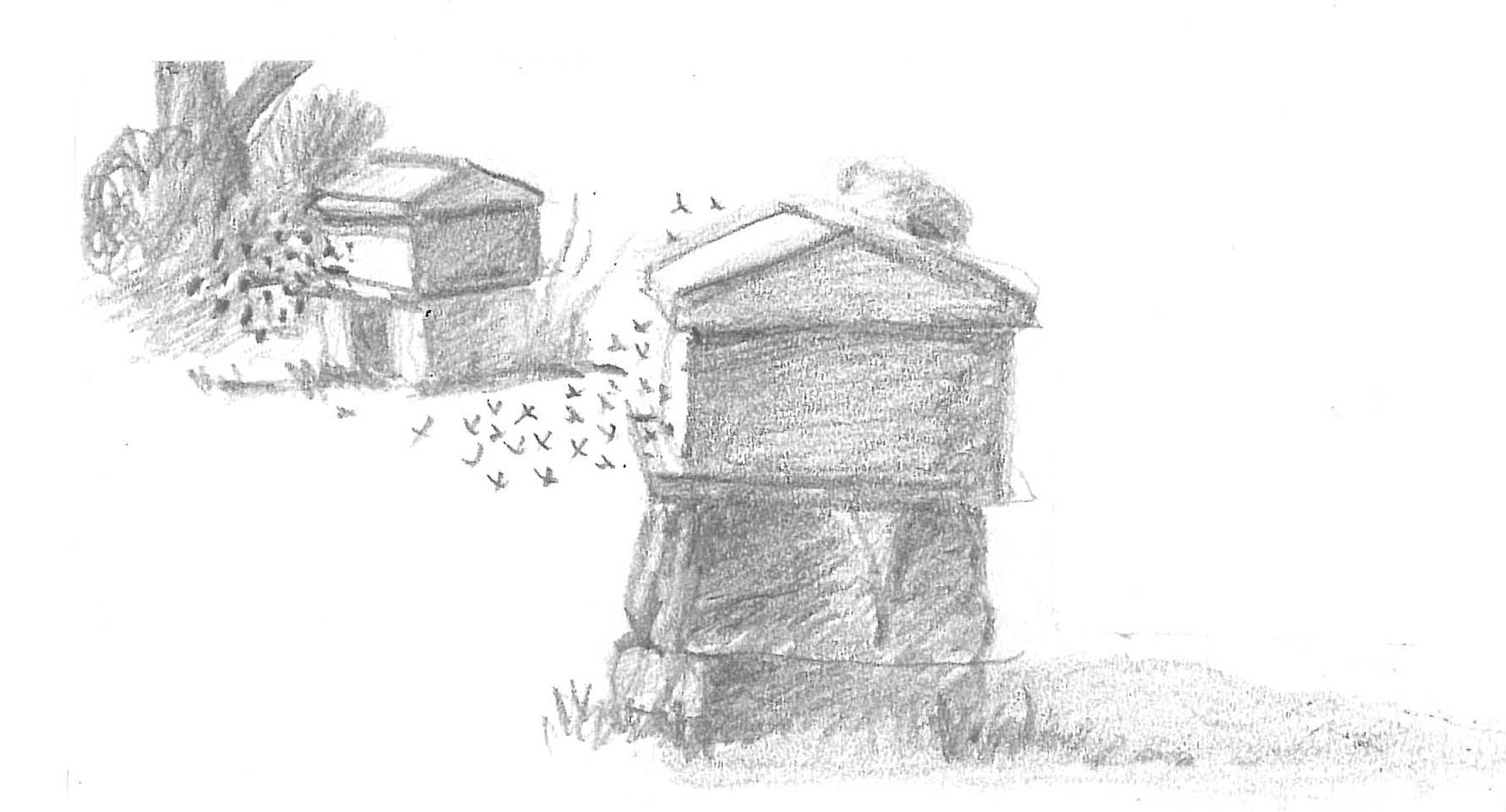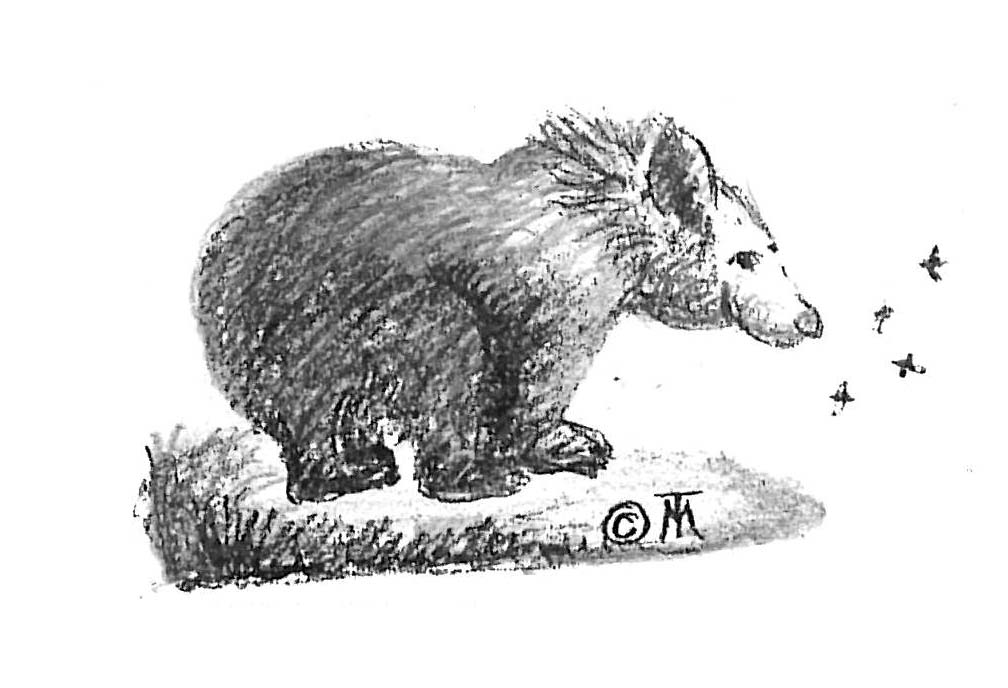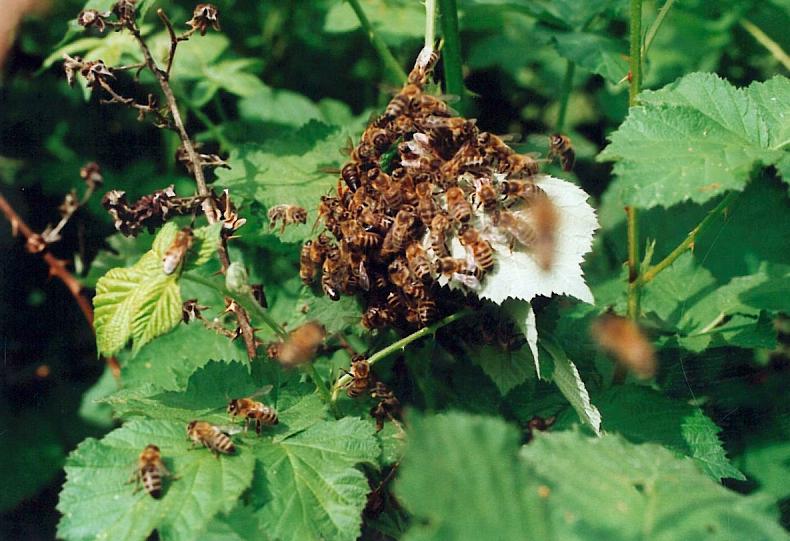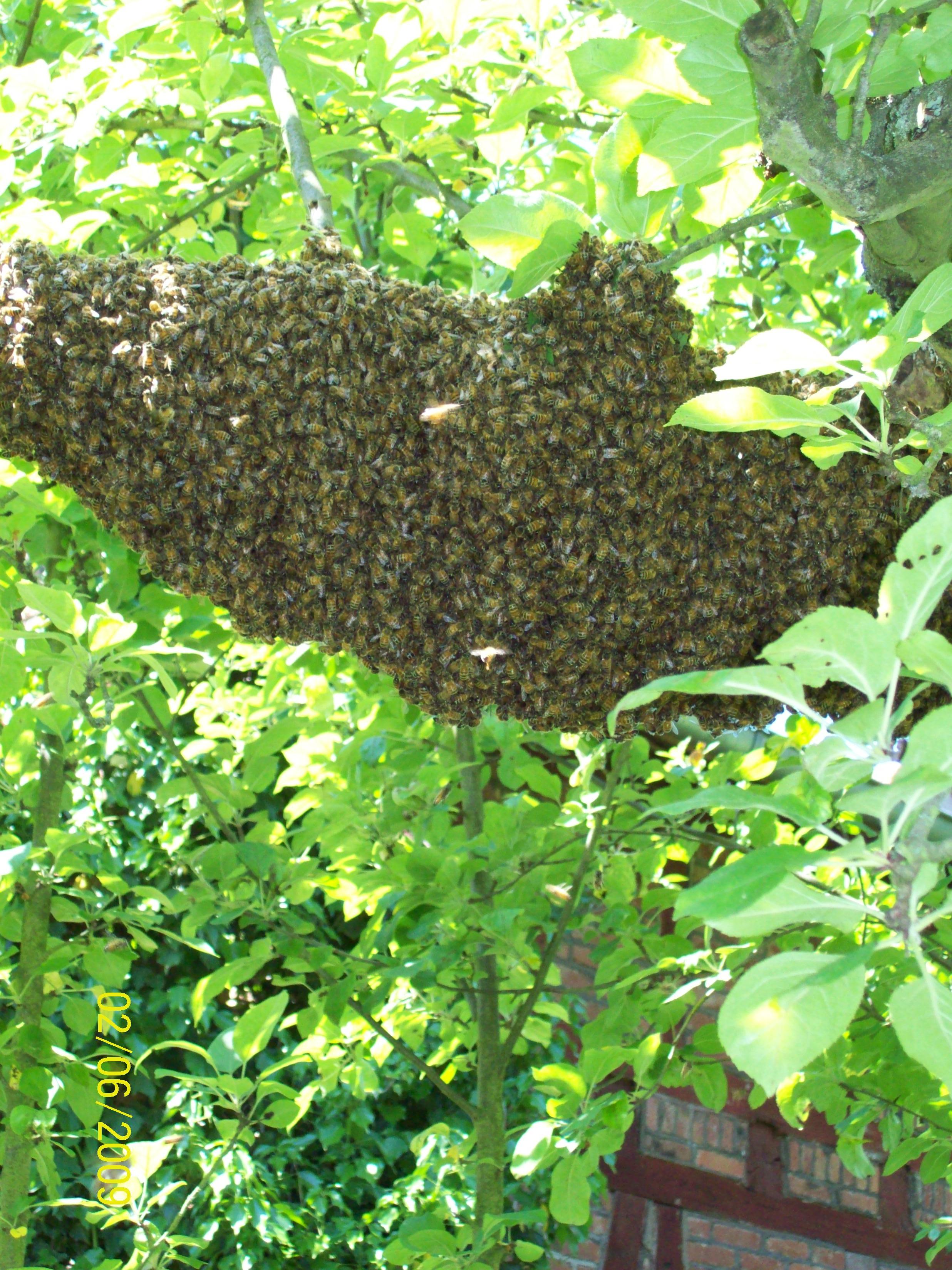
Centre for
Ecological Apiculture





Sign
up for bee-therapy | Beauty-cure
| Anti-aging
| Infertility
| Cancer
of the breast | Hashimoto-Thyreoiditis
|
Crohn's disease
Rheumatism
| Juvenile idiopathic
arthritis | Heart
diseases | Arteriosklerosis
| MS |
Diabetes
| Neurodermitis
| Obesity |
Depression
and Psychosis
Allergies
| Alzheimer
/ Parkinson | Diseases
of the kidneys | Pancreas
| how
to improve fitness of the body
Propolis
| Beeswax | Royal
Jelly | Organic Honey
| Comb in the Comb
| Raw Honey | Organic
Beekeeping Basic Course
Expertise
| Courses | Home
| Research | Save
Beecolonies-Bienenpatenschaft | Certification
| Training
Apitherapy
Api
Review Letters / Science Review Letters
Akademie
der Kunst und Philosophie / Academy of Arts and Philosophy
Save
the Bees, Bumblebees and Beecolonies
Zentrum
fuer wesensgemaesse Bienenhaltung
Centre
for Ecological Apiculture
Forschungszentrum
Bienentherapie / Natural Apitherapy Research Centre
Beetherapy
/ Academy of Sciences
DI.
M. Thiele, President and international Coordinator
Natural Honey And Organic Honey From Framehive
Beekeeping?
Old Traditions In Apiculture And Viniculture
(more
info see german issue)
Abstract: In most
cases organic produce are a good choice. The slogan: "without genetic engineering
because it's organic" does not apply to supermarkets. Organic Honey and
other organic beeproduce do not live up to expectations at all. In most
cases natural beekeeping is pretended, in parts even ecological, sustainable
or bee-friendly beekeping. Warré hive beekeeping. Almost no difference
between organic and non-organic beekeeping method. The beecolonies are
neither being kept ecological in organic apiaries nor in non-organic apiaries.
The "traditional" framehive beekeeping and sugar feeding allows organic
beekeepers to harvest as much honey as beekeepers from other beekeeping
associations. Many authors who write about organic beekeeping or certified
organic apiaries, have more phantasy and the ability of pure invention
than real specialist knowledge. The aims and principles of an organic apiary
still remain rationalisation and higher yields at the expence of the beecolony's
health. Mrs. Bentzien describes the organic apiary highly imaginative in
the most rosy colours; this apply also to organisations such as "natural
beekeeping trust"; but the reality of organic beekeeping is different:
those beekeepers who are allowed to use an organic label are allowed to
feed sugar, to carry out artificial insemination of the queen - well, of
course an "insemination of the queen without much injuring" should be guaranteed
- , to use non natural queenbreeding methods ("grafting"), to add artificially
created parts of the comb (which disturbs communication among the colony),
to fix these artificially created parts of the comb with wire, the use
of magazines and supers (for instance framehive beekeeping, rotating framehive
and warre beekeeping), the use of smoke (which by the way can be called
an act of cruelty to bees), even the Pressing-Method is not prohibited;
Some organic beekeepers even clip the wings of the queen to prevent swarming
- a technique which is supported by many beekeeping associations and scientists.
Travelling with beecolonies is also allowed in organic beekeeping; that's
the reason why also organic beeproduce may be contaminated with heavy loads
of pesticides and antibiotics. Against industrialisation of apiculture
and viniculture. Mass-produced articles sold in supermarkets: Food processing
industry uses the full repertoire of food technology; regarding beeproduce
for instance: ripening machine, heated honey homogenisators, ultrafiltration,
honeypowder, artificial comb honey; Medihoney
 We
reported in Apicultural Review Letters [1] ,that the turnover with
organic produce annually increase by five billion $ Dollar and 2007 passed
the grade of 40 billion $ Dollars. The biggest markets for organic products
are Germany, the United States, Great Britain, and Sweden. Most organic
products are really good, especially fruits, vegetables, meat. They are
produced with less pesticides, without GMO, and in accordance with nature.
We
reported in Apicultural Review Letters [1] ,that the turnover with
organic produce annually increase by five billion $ Dollar and 2007 passed
the grade of 40 billion $ Dollars. The biggest markets for organic products
are Germany, the United States, Great Britain, and Sweden. Most organic
products are really good, especially fruits, vegetables, meat. They are
produced with less pesticides, without GMO, and in accordance with nature.
Nevertheless some organic produce are widespread
who cannot alltogether be called healthy (for instance organic sugar, organic
fast food, sugar containing sweets, dried milk). However, you may say:
if I want to ruin my health I can do it at least without ruining the environment!
Organic Honey and other organic beeproduce
do not live up to expectations at all. In most cases natural beekeeping
is pretended, in parts even ecological or beekeeping considering the character
of bees. You can see pictures of straw hives and so on allthought there
is almost no difference between organic and non-organic beekeeping method.
The beecolonies are neither kept ecological in organic apiaries nor in
non-organic apiaries. The "traditional" framehive beekeeping and sugar
feeding allows organic beekeepers to harvest as much honey as beekeepers
from other beekeeping associations. Thus there is no reason for higher
prices in the organic honey sector, as this kind of organic beekeeping
supports the worldwide dying of beecolonies.
In
beekeeping considering the character of bees the beekeeper turns one's
attention to supporting a harmonical developement of the bee-colony during
the year and its natural way of living. Unfortunately, this is being neglected
in many apiaries - even in organic apiaries. In the USA for instance apiaries
with 50.000 colonies are nothing unusual. The colonies are being loaded
on trucks in units of 500 colonies and are being transported with
open flightholes for days and more than 4.000 km. The way of keeping bees
in Europe or especially Germany is similar; framehive-beekeeping (Langstroth,
Dadant etc.) - although the opposite of ecological beekeeping - is widespread,
also among organic apiaries(!); travelling with beecolonies is also very
common; 30.000 km per year is nothing unusual for such an apiary - therefore
"Colony Collapse Disorder" (CCD) may also occur in Europe or Germany.
Making full use of
travelling with beecolonies is very common among organic beekeepers; this
is a reason why also organic beeproduce such as honey, comb in the comb,
beesbread and propolis can be contaminated with pesticides and antibiotics
from time time. There are many areas in the world like we have in Baden-Württemberg
(federal state of Germany); in this federal state of Germany more than
11.000 hectaria fruit farming regions were sprayed with Streptomyzin. Large
amounts of honey and other beeproduce had beed contaminated with Streptomyzin,
because main infection time is during flowering time of fruit farming areas.
In Baden-Württemberg more than 8.000 kg Honey had been polluted with
Streptomycin of more than 0,02 mg/kg. According german regulation on maximum
permissible limits this peak load was allowed until September 2008. In
season 2009 the new Europien peak dose is 0,01 mg/kg. Diseases of fruit
farming regions in Germany is covering only the whole territory of the
federal states Baden-Württemberg and Bayern. The use of Streptomyzin
in fruit farming regions is strictly conditional; it is only allowed to
use it within a special warning system; these warnings normally are very
short termed, as they depend on weather conditions. Organic beekeepers
of course take care that their hives are being located on field managed
organically, but they don't care that their bees also fly to conventional
fields or fruit farming areas; this apply especially to organic apiaries
who migrate with their hives. [9][10]
Nicht
nur vom intensiven Obstbau droht Gefahr, sondern auch von sogenannten Guttationstropfen;
diese sitzen als runde Wassertröpfchen meist auf den Blattspitzen
und den Blatträndern. Die Guttationstropfen zum Beispiel an Mais,
Getreidepflanzen, Raps usw. können sehr hohe Giftkonzentrationen beinhalten,
die auch ohne weiteres das 100-fache der für Bienen tödliche
Dosis enthalten können. Das mit Clothianidin behandelte Saatgut, das
zum Bienensterben geführt hatte, darf nicht mehr verwendet werden.
Es gibt aber noch genügend andere giftige Mittel; zum Beispiel das
Insektizid "Force 1.5 G". Tefluthrin ist ein breit wirksames Nervengift.
Ein anderes Insektizid mit demselben Wirkstoff, das bei Futter- und Zuckerrüben
zugelassen ist, gilt als sehr giftig für Wasserorganismen und kann
in Gewässern längerfristig schädliche Wirkung haben. Auch
für Bienen ist dieser Stoff hochgradig giftig. Dabei gibt es längst
Möglichkeiten, in der gesamten Landwirtschaft ohne Pestizide auszukommen.
Die einzig zuverlässige und umweltverträgliche Methode, den Maiswurzelbohrer
zu bekämpfen, ist die Fruchtfolge! [9][10]
Many authors who write about organic beekeeping
or certified organic apiaries, have more phantasy and the ability of pure
invention than real specialist knowledge. For instance the German author
Claudia Bentzien: do not forget that regarding the organic apiary "the
most important aims of an organic beekeeper is beekeeping considering the
character of bees" - That would be perfect, if it were the aim of an organic
beekeeper! The aims and principles of an organic apiary still remain rationalisation
and higher yields at the expence of the beecolony's health, as shown in
the last issue of Apicultural Review Letters. Mrs. Bentzien describes
the organic apiary highly imaginative in the most rosy colours; but the
reality of organic beekeeping is different: those beekeepers who are allowed
to use an organic label are allowed to feed sugar, to carry out artificial
insemination of the queen - well, of course an "insemination of the queen
without much injuring" should be guaranteed - , to use non natural queenbreeding
methods ("grafting"), to add artificially created parts of the comb (which
disturbs communication among the colony), to fix these artificially created
parts of the comb with wire, even the Pressing-Methode is not prohibited;
Some organic beekeepers even clip the wings of the queen to prevent swarming.
[2][3][4][5]
Even organic and bio-dynamic apiaries are
allowed to use artificial parts of the combs, to feed sugar and siropes,
to make full use of travelling with beecolonies, to use heat treatment
for bee-produce. Thats the reason why it is useful purchasing apitherapeutical
beeproduce from beekeeping considering the character of bees (certified
according standards of Centre for ecological Apiculture); these beekeepers
support a "longlasting fertility in beekeeping" in contrast to success
in artificial beekeeping for a short time. These produce cannot be found
in organic shops or supermarkets; they can only be ordered directly in
special apiaries. [6]
Those who want to stop "traditional" framehive
beekeeping and start with ecological topbar beekeeping should start with
a distance course in ecological topbar beekeeping or practical courses
/ Traineeship in the Centre for ecological Apiculture. [7]
__________
[1] Centre for ecological
Apiculture 2007: Organic Honey does not live up to expectations. Apicultural
Review Letters 2007, 6, # 112.
[2] Dbj 2008, 16,
p. 229.
[3] Thiele, M. 2008: Why
do honeybees swarm? Apicultural Review Letters 2008, 7, #
239.
[4] Ibd.
[5] M. Thiele 2002: Nature
and Art. Apiservices 2002 - Virtual beekeeping gallery. In it: In
the Organic Beekeeping Journal 8/2001 (http://www.thehealingpath.com) you
can read the following councel to organic beekeepers: „The best methods
of managing the swarm impulse, is to clip the queens wings and catch the
swarm from the ground" - a more stupid method to deal with the swarm impulse
cannot be found on earth until now ! This is the way the "organic beekeeping
society" supports beekeepers up in word and deed. See also note 3.
[6] Further information
and adress sources for pure beewax from naturally built combs, pure german
comb honey, beebread, natural honey (runhoney harvested from naturally
built combs), german pollen, pure german propolis, Gelee Royal: Centre
for ecological Apiculture, phone 0049 5652 917899 or see List
of apitherapeutical produce
[7] Further information
on distance course ecological beekeeping in topbar hives see: Centre
for ecological Apiculture
[8] Centre for social medicine
and natural Apitherapy 2009: Natural
Therapies and social Medicine instead of Biotech-Medicine -
Press-Release
[9] Thiele, M. 2009: How
to avoid contamination of bee produce with antibiotics and how to obtain
apitherapeutical beeproduce without residuals? Apicultural Review Letters
2009, 8,Nr. 335
[10] itm 1/2009
Further
reading and references:
Online-Magazines:recently
published scientific research and practical advices on this topic can be
found in the quarterly magazine Apiculture
and Supplement Apicultural
Review Letters
as
well as in Natural Science and
Science
Review Letters
Genetically
Modified Seeds Cause More Harm Than Good I-VI. More...
Cancer
Caused By GMO's. More...
Genetically
Engineered Plants Or Animals In Landscape - Who Is Responsible For It,
Like Authorities Who Release The Rules, Can Be Taken To Court For It
Monsanto
And The GM-Crop Disaster
Biosafety?
Unscientific Assumptions The Basis Of Approvals? - Blatant Propaganda Exercise
Stands Validated As Exemplary Science - Toxic Genetically Engineered Foods
Could Have Been Approved.
Genetically
Modified Foods And Seeds Are Unhealthy And Unsafe - Evidence Links GM Foods
To Allergies
Green
Biotechnology And Red Biotechnology In The Retreat
On
The Risks Of Agro-Biotechnology I-V - Negative Side Effects Of Genetically
Modified Crops On Honeybees
"Genetic
Engineering - Wrong In The Premises?"
Copyright:
Centre for Ecological Apiculture

